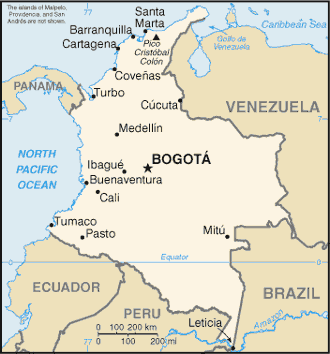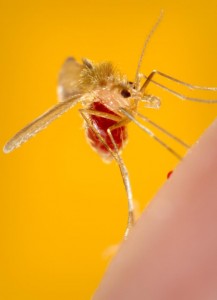Health officials have issued an epidemiological alert for the city of Neiva, located in south central Colombia due to a leishmaniasis outbreak, according to a La Nacion report (computer translated).

The alert, issued on Apr. 26, came after a number of people became infected, including a four-month-old baby who died from the parasitic infection.
In addition, of the approximately 1000 dogs from the street tested for the parasite, 500 turned out infected. The infected dogs were sacrificed, according to the report.
According to the Municipal Health Secretary, Faiver Segura Ochoa, the outbreak began in the settlement Lomas de San Pedro, Comuna Nueve in the city of 380,000.
“According to information collected by the secretariat in the area, there is an abundant canine street population, which have been more than 50% positive for tests of the parasite of leishmaniasis.
“So far we worked in the area of environmental sanitation, mental and reproductive health trying to help the people.
“What we hope to do is to test the canine population and an assessment of children under five to rule out having the disease. The key is to make a timely diagnosis because the response to treatment is very effective when it is done on time.” he added.
Leishmaniasis is a parasitic disease spread by the bite of the female sandfly.

Image/CDC
There are different forms of leishmaniasis.
- Cutaneous leishmaniasis affects the skin and mucous membranes. Skin sores usually start at the site of the sandfly bite. In a few people, sores may develop on mucous membranes.
- Systemic, or visceral, leishmaniasis affects the entire body. This form occurs 2 – 8 months after a person is bitten by the sandfly. Most people do not remember having a skin sore. This form can lead to deadly complications. The parasites damage the immune system by decreasing the numbers of disease-fighting cells.
Cases of leishmaniasis have been reported on all continents except Australia and Antarctica.
LISTEN: Dr. Peter Hotez discusses leishmaniasis
Related:
- Miss Universe 2015, Pia Wurtzbach, appointed Goodwill Ambassador for UNAIDS-AP
- HIV: Researchers at Illinois gain insights to redirect leading cure strategy
- Hepatitis A prompts recall of imported frozen raw tuna (Ahi) cubes
- Colorado: Hantavirus case reported in Garfield County
- Plague reported in Boulder County, Colorado cat
- Powassan could become a greater public health threat than Lyme disease: Yale researcher


One thought on “Colombia: Leishmaniasis outbreak prompts health alert in Neiva”